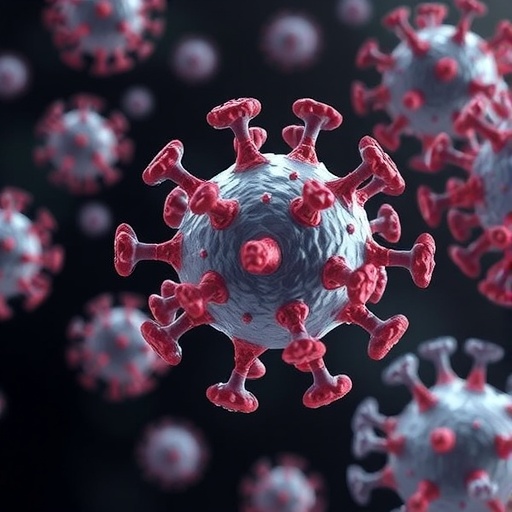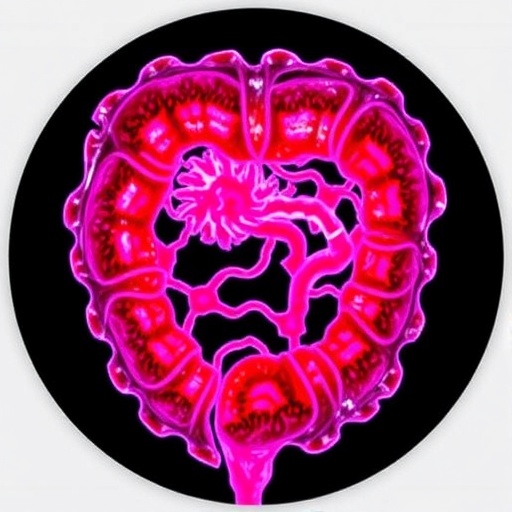
In the realm of modern medicine, the relentless battle against antibiotic resistance looms large, sparking an urgent quest for alternative treatment strategies. Recent research highlights a promising avenue â the exploration of plant-based extracts with potential antibacterial properties. A novel study published in BMC Complementary Medicine and Therapies dives deep into the effectiveness of tannin-free ethanolic extracts derived from medicinal plants specifically against the formidable methicillin-resistant Staphylococcus aureus, commonly known as MRSA. This unprecedented look at natural remedies is paving the way for innovative solutions to combat this growing health crisis.
At the heart of this groundbreaking investigation is the alarming prevalence of MRSA, a strain of bacteria notoriously resistant to many conventional antibiotics. This pathogen primarily wreaks havoc in healthcare settings, leading to severe infections and placing an enormous burden on healthcare systems worldwide. The emergence of such resistant strains has highlighted the urgent need for new antimicrobial agents and the revival of traditional medicine approaches, propelling researchers toward exploring the untapped potential of medicinal plants.
The researchers â Nourmohammadi Ghezelghaye, Alibegli, and Fazelnejad â meticulously conducted experiments to evaluate the antibacterial efficacy of tannin-free ethanolic extracts derived from various medicinal plants. Their approach is rooted in ethnobotany, where traditional knowledge of plant-based healing practices is combined with modern scientific inquiry to uncover novel therapeutic agents. By focusing on tannin-free extracts, the study aims to circumvent some of the adverse effects often associated with tannins while maximizing therapeutic benefits.
The study involved a comprehensive selection of medicinal plants renowned for their historical use in treating infections. Extracts were prepared using an ethanolic solution, ensuring that a wide range of bioactive compounds could be extracted. The ethanolic extraction method is particularly significant as it often yields a diverse array of phytochemicals, which may work synergistically to enhance antibacterial activity. This process underscores the importance of extraction methods in determining the efficacy of medicinal plant extracts in combating pathogens.
The researchers conducted a series of in vitro experiments to assess the antibacterial activity of the extracted compounds against MRSA. Using standard microbiological techniques, including disk diffusion and MIC (minimum inhibitory concentration) tests, the team was able to quantify the effectiveness of the extracts. Results indicated a remarkable potency of certain extracts, showcasing their potential to inhibit the growth of MRSA, thus highlighting an encouraging direction in tackling antibiotic-resistant infections.
The implications of these findings are profound, especially in the context of increasing resistance among bacterial pathogens. The study suggests that integrative approaches, combining conventional antibiotics with plant-derived compounds, could enhance treatment efficacy and mitigate the risk of further resistance development. This dual-action strategy offers a glimmer of hope in an increasingly pharmacologically challenging landscape.
Additionally, the safety profile of these extracts holds significant promise. Unlike many synthetic antibiotics, plant-based substances often exhibit lower toxicity and reduced side effects. As healthcare professionals and patients alike seek more holistic and natural treatment options, the application of these tannin-free ethanolic extracts presents a compelling alternative worth exploring further. This research opens doors to a deeper investigation into the pharmacognosy of medicinal plants.
Moreover, the increasing consumer interest in natural remedies and supplementation compels the pharmaceutical industry to pivot towards research rooted in traditional knowledge. The successful isolation and identification of active compounds from these medicinal plants could lead to the development of new herbal formulations that are both efficacious and appealing to a market that is increasingly moving away from synthetic pharmaceuticals.
As this study underlines the effectiveness of tannin-free ethanolic extracts against MRSA, it also highlights the necessity for continued research in this field. Future studies will be critical in elucidating the mechanisms through which these extracts exert their antibacterial effects, particularly at the molecular level. Understanding these interactions may lead to the identification of novel drug targets and a broader application of plant-derived therapies.
Moreover, it is essential to consider the environmental impact of pharmaceutical production and the sustainability of sourcing natural substances. As the quest for greener chemistry progresses, harnessing the potential of plants could lead to more ecologically sound production methods for effective antimicrobial agents. Emphasizing sustainable practices in the cultivation and harvesting of these medicinal plants will ensure a continual supply for future research and application.
In conclusion, the groundbreaking study by Nourmohammadi Ghezelghaye and colleagues heralds a pivotal moment in the fight against antibiotic-resistant bacteria. By shining a light on the antibacterial properties of tannin-free ethanolic extracts from medicinal plants, the research encourages a fresh examination of traditional therapies in contemporary medicine. The findings may ultimately lead to the development of innovative, more effective treatments capable of combating MRSA and other resistant pathogens. As the world grapples with the looming threat of antibiotic resistance, the path forward may lie in the embrace of our botanical heritage.
In these times of increasing resistance to conventional antibiotics, pursuing alternative strategies, including plant-based therapeutics, is not just innovative; it is essential. The results from this study represent a vital contribution to an emerging field of research that emphasizes the importance of biodiversity in our pursuit of health solutions. Researchers and healthcare practitioners alike must continue to embrace these natural resources to unlock their full potential in modern medicine, thus ensuring a safer, more sustainable future for healthcare globally.
With the study’s compelling evidence and the ongoing global health crisis, the urgency for further investigation and application of these findings cannot be overstated. As the world turns to nature for solutions, the integration of ethnobotanical knowledge with scientific research will be instrumental in reshaping our approach to managing infections and improving public health outcomes.
Continued collaboration between researchers, healthcare providers, and traditional healers will be vital in advancing this field, paving the way for effective natural therapeutics that complement conventional medicine. The exploration of tannin-free ethanolic extracts from medicinal plants is just the beginning of what may soon evolve into a renaissance in plant-based therapies in the healthcare arena, potentially revolutionizing the way we approach and treat infections.
As we stand on the brink of this new frontier in medicine, the call to action is clear. It is crucial to invest in research, foster innovation, and encourage the sustainable use of our natural resources. The findings of this study represent a beacon of hope in a challenging landscape, reminding us of the invaluable connections between nature and health, and the potential waiting to be unlocked in our planet’s rich botanical heritage.
Subject of Research: Antibacterial activity of tannin-free ethanolic extracts from medicinal plants against methicillin-resistant Staphylococcus aureus.
Article Title: Antibacterial activity of tannin-free ethanolic extracts from medicinal plants against methicillin-resistant Staphylococcus aureus.
Article References:
Nourmohammadi Ghezelghaye, P., Alibegli, M., Fazelnejad, A. et al. Antibacterial activity of tannin-free ethanolic extracts from medicinal plants against methicillin-resistant Staphylococcus aureus.
BMC Complement Med Ther 25, 271 (2025). https://doi.org/10.1186/s12906-025-05019-1
Image Credits: AI Generated
DOI: 10.1186/s12906-025-05019-1
Keywords: MRSA, medicinal plants, tannin-free extracts, ethanolic extracts, antibiotic resistance, natural remedies.
Tags: alternative treatments for resistant bacteriaantibacterial properties of medicinal plantscombating antibiotic resistanceeffectiveness of natural extracts against MRSAEthanolic extracts for MRSA treatmentethnobotany in modern medicineinnovative solutions for MRSAmedicinal plants and health crisisnatural remedies for infectionsovercoming methicillin-resistant bacteriaresearch on plant-based antibioticstannin-free plant extracts




